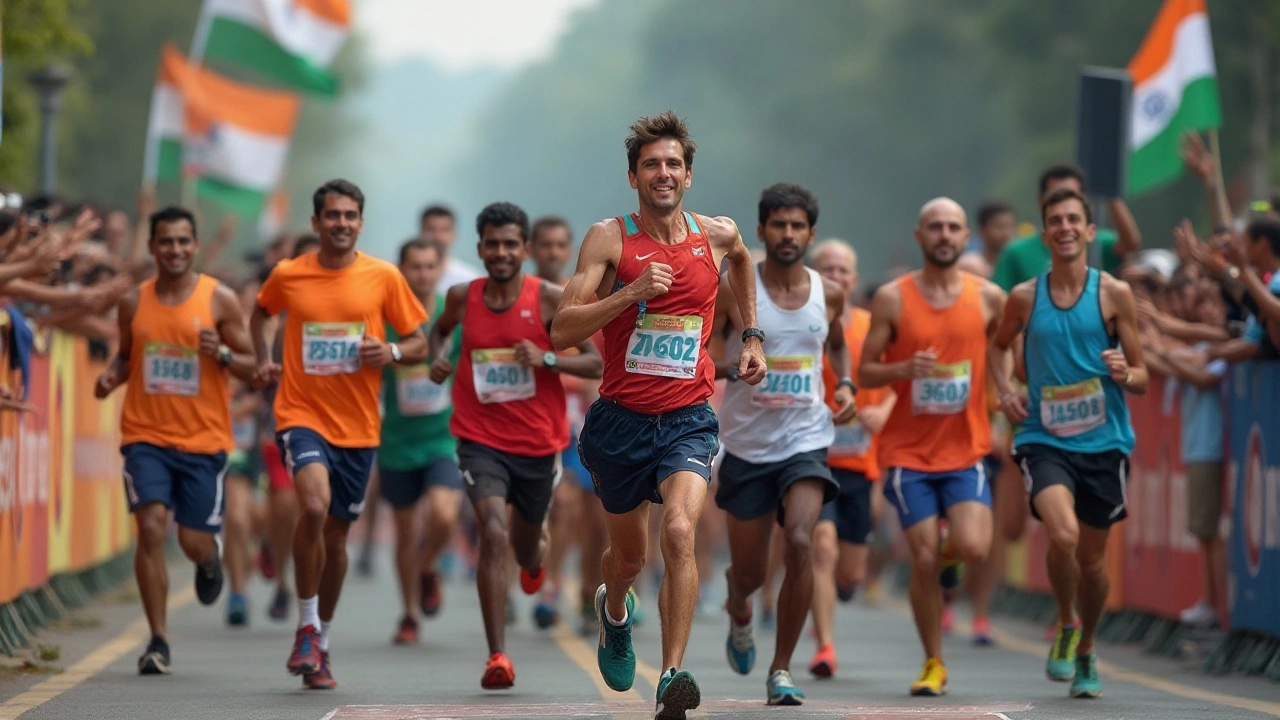Finish a Marathon in Under 7 Hours: Simple Steps That Work
If you’re aiming to cross the finish line in less than seven hours, you don’t need a fancy plan or elite speed. You just need a sensible approach that matches your current fitness, builds confidence, and keeps you safe. Below are the basics you can start using today.
Set a Realistic Pace From the Start
The first thing to lock down is your target pace. A 7‑hour marathon equals about 16 minutes per mile (or 10 minutes per kilometer). Grab a running watch or a free app, set it to a 16‑minute per mile split, and practice it on your long runs. If you can keep that rhythm for 8‑10 miles, you’re on the right track.
Don’t start too fast. Many runners burn out early because they chase a sprint feeling at mile 1. Instead, treat the first half as a warm‑up. Aim for 16:30‑17 minutes per mile in the first 13 miles, then gradually settle to 16 minutes in the second half. This ‘negative split’ strategy saves energy for the toughest part of the race.
Build a Weekly Routine That Grows Your Endurance
Structure your training around three key runs each week: a short speed day, a medium‑length steady run, and a long run. The long run should increase by about 10% each week, peaking at 20‑22 miles three weeks before race day. Keep the long run at your target marathon pace or slightly slower; the goal is to get comfortable staying on your feet for many hours.
Include one day of cross‑training—cycling, swimming, or a light strength session. It boosts cardio without adding extra pounding on your joints, helping you stay injury‑free.
Don’t forget rest. One full rest day each week lets your muscles repair, and that recovery is what turns training into performance on race day.
Fuel Right Before and During the Race
Running for seven hours burns a lot of calories. Your body needs carbs to keep the muscles fueled and electrolytes to prevent cramps. Eat a carbohydrate‑rich dinner the night before (pasta, rice, potatoes) and have a light breakfast—like a banana and toast—about two hours before the start.
During the marathon, aim for 30‑60 grams of carbs per hour. Easy options are sports gels, chews, or a small banana. Pair them with water or an electrolyte drink to stay hydrated. Test these foods on your long runs; never try something new on race day.
Mind the Small Details That Add Up
Wear shoes that are broken in but still have a bit of cushion left. Replace them after about 300‑400 miles to avoid excess wear. Dress for the weather—layer if it’s cold, but avoid cotton because it stays damp.
Practice your race‑day routine: bathroom breaks, putting on shoes, and the fueling plan. The smoother the routine, the less you think about it while you’re out on the course.
Recover Smart After the Finish
Finishing under seven hours is a win, but the recovery week matters for your next run. Do gentle walking or cycling for 20‑30 minutes the day after the marathon to flush out waste products. Stretch the major muscle groups—calves, hamstrings, quads—for 10 minutes each.
Eat a protein‑carb mix within an hour of finishing (for example, a protein shake with fruit). It jump‑starts muscle repair. Keep sleeping well and stay hydrated for the next few days.
Follow these steps, stay consistent, and you’ll see your marathon time drop below the seven‑hour mark without needing to become a pro. Good luck, and enjoy the race!
